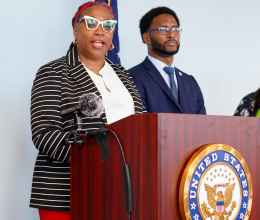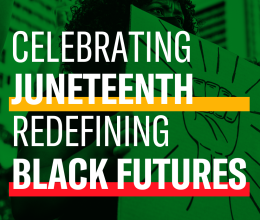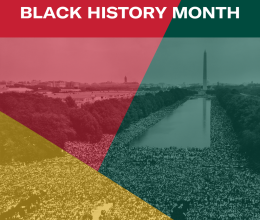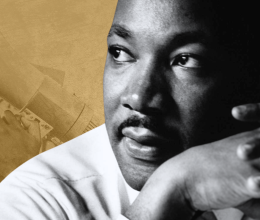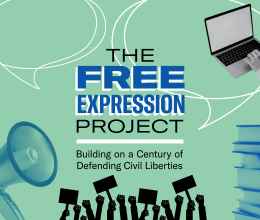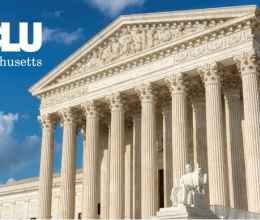The ACLU of Massachusetts and Bridgewater State University today announced the release of a model policy designed to reduce instances of bias in policing, including racial profiling, on college and university campuses. Developed over two years in close collaboration with students, police, and other higher education stakeholders, the Racially Just Policing Model Policy builds on recent statewide police reform to ensure campuses are safe learning, working, and living environments for all.
RACIALLY JUST POLICING MODEL POLICY
“We’re proud to partner with Bridgewater State University on this important initiative,” said Carol Rose, executive director of the ACLU of Massachusetts. “Every year, Black and brown students, faculty, and staff are singled out on college campuses as suspicious while going about their lives. Seeking justice after the fact is not enough; with the release of this model policy, we hope to prevent such incidents from happening in the first place.”
The model policy contains recommendations and best practices that are designed to help colleges and universities develop community-driven policing practices, build trust and transparency, and reckon with law enforcement’s history of racial injustice. From creating alternative emergency response options for mental or behavioral health issues on campus to establishing regular assessment of encounter and arrest data, the model policy aims to help institutions achieve more welcoming and supporting campus communities.
“I’m proud of the efforts of the Bridgewater State University Police Department and of Chief David Tillinghast, who has been working on the Racially Just Policing Model Policy in collaboration with the ACLU of Massachusetts since fall 2019,” said Bridgewater State University President Frederick W. Clark Jr. “BSU is the first university in the state to develop and begin implementing such a model policy as part of our commitment to identifying and addressing elements of policy, practice, and culture that may serve to impede our efforts at fully realizing racial justice and equity.”
The model policy was informed by survey responses from presidents, police chiefs, and diversity administrators at 18 public colleges and universities in Massachusetts, as well as input from the State University Council of Presidents and the Massachusetts Association of Community Colleges.
“The nine tenets of the model—among them, establishing a community mental health and support services team, limiting undue police encounters and police escalation, and introducing and improving police training and education—are bedrock components of racially just policing,” said David Tillinghast, Chief of Police at Bridgewater State University. “BSU embraces measures to increase police transparency and oversight.”
The authors met with students from several institutions, including Harvard University, Greenfield Community College, and Bunker Hill Community College. In addition, the report was bolstered by guidance from police reform experts and independent research.
"Too often, people of color on college campuses must deal—not only with the stress of work and study—but with the racist suspicion that they are ‘out of place’ in their own communities,” said Rahsaan Hall, director of the Racial Justice Program at the ACLU of Massachusetts. “We hope this model policy will empower students to demand change and encourage administrators to do the work of building healthier environments and more equitable public safety policies at their institutions.”
The model policy offers a framework for institutions to consider, acknowledging the unique nature, structure, and needs of each campus environment. Bridgewater State University has already begun to implement this policy, and the authors recently encouraged other institutions to sign a pledge signaling their commitment to review the model and consider implementing it themselves.
